Has your smoke alarm ever gone off on extremely hot days without any actual fire? Smoke alarms are an essential safety precaution in your home or office, but sometimes smoke alarms go off in a scorching and humid environment.
Summer is just around the corner; here’s why smoke alarms go off in humid weather and how you can get the right smoke alarms for a hot and humid environment. In this article, we have explained how extreme humidity can set off smoke alarms.
How Can Extreme Humidity Set Off Smoke Alarms?
Quick Navigation
Extreme humidity creates air with a high concentration of water vapor. High concentrations of water molecules in the air act just like smoke-filled air. It makes the detector too sensitive to function properly.
Most smoke alarms cannot differentiate between highly humid air and smoke. This high density of water molecules in the air confuses smoke detectors and sets off the alarm. Thus humidity becomes an important cause for false alarms.
Why Do Smoke Alarms Go Off In Hot Weather?
In hot weather, high humidity is the main reason smoke alarms go off. Humid air will have a lot of moisture in it.
Moisture means water vapor or water molecules in the air. This high density of water molecules which are also particles acts the same way that smoke particles do.
It’ll disrupt the current flow in smoke alarms that use ionization technology and set off the alarm.
Sometimes, a high density of moisture content in the air, aka humidity, can also disrupt photoelectric smoke alarms. This is why visible steam from hot showers can sometimes set off smoke alarms, but the latter is less likely to happen.
How Extreme Humidity Can Set Off A Variety Of Smoke Alarms
1. Google Nest Protect
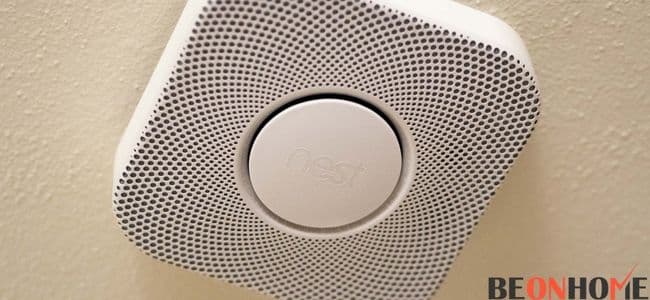
- Google Nest Protect is a smart device that detects smoke and sets off alarms. It uses “steam check” technology to differentiate between smoke and steam and is perfect for areas with high humidity.
- It is very hard to set off false smoke alarms as Google’s Nest uses advanced logarithms to detect smoke.
- You can connect it to other devices using Wi-Fi and receive updates on your phone. Google Nest Protect retails at around $110.
2. X-sense Smoke And Carbon Detector
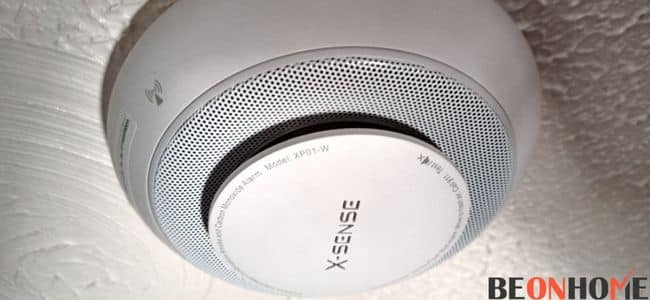
- X-sense smoke detectors can be used with batteries and have wireless connectivity. It’s easy to install, has an LCD screen, and is budget-friendly as it costs around $40.
- It uses photoelectric technology, which reduces false alarms and is perfect for highly humid areas.
- However, highly humid environments and even steam that mimics smoke and covers the light source could set false alarms on a photoelectric sensor.
3. First Alert BRK 9120B
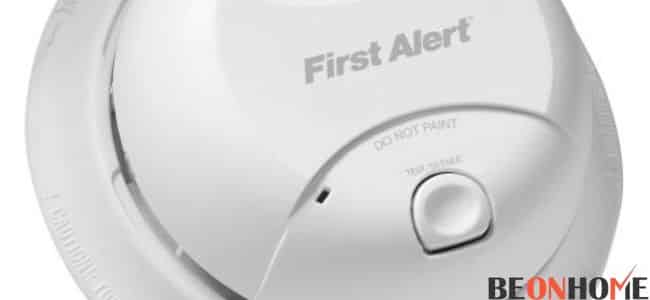
- As a reputed brand for fire safety products, the smoke alarms have a relative humidity rating of 90%.
- First Alert BRK 9120B uses ionization technology and has to be hardwired. It also comes with battery backup and also photoelectric sensor.
- First Alert BRK 7010B uses only a photoelectric sensor and is perfect for highly humid areas. It also requires to be hardwired and comes with battery backup. It retails for around $20.
- However, high-density moisture particles and dust particles can trigger false alarms.
4. First Alert BRK 7010B
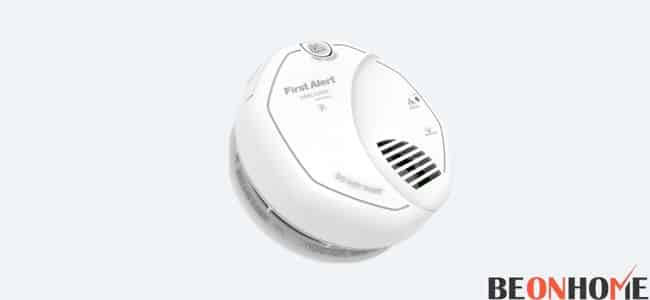
- First Alert BRK 7010B also has a relative humidity rating of 90%.
- It uses only a photoelectric sensor and is perfect for highly humid areas. It also requires to be hardwired and comes with battery backup. It retails for around $20.
- Photoelectric sensors can get falsely triggered when any external situation blocks the light source, like highly humid rooms and the concentration of steam and dust particles.
5. Alert Pro Smoke
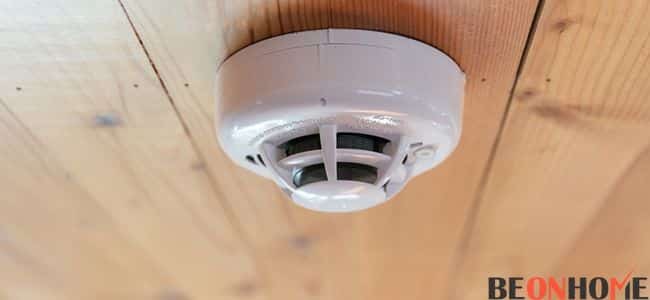
- This is a photoelectric-only sensor which makes it highly desirable for humid areas. It is battery operated, has an LED indicator, and has a 5-year warranty.
- It has a really loud alarm and carbon monoxide detector as well. It retails for around $22.
- Photoelectric sensors can set off smoke alarms in contaminated environments with moisture, dust, and steam. It can also malfunction in case the battery fails.
As you can see how annoying humidity can be, make sure you choose a humidity-resistant smoke detector for your home
What Are Humidity-Resistant Smoke Detectors?
Humidity resistance smoke detectors use different technology to reduce false alarms, especially in areas with hot and humid weather.
Smoke detectors like Google Nest Protect use advanced AI to distinguish between steam and fire. Google’s algorithm detects the difference between smoke and humidity and drastically reduces false alarms.
Usually, it’s harder for smoke alarms that use ionization technology to tell water vapor and smoke particles apart. This is why they can detect false alarms in areas with higher humidity, like near bathrooms, while taking hot showers or hallways during really hot weather.
Photoelectric sensors rarely create false alarms and are much better than ionization smoke detectors. However, ionization smoke detectors are recommended as they can detect both fast fires and slow ones.
Final Talk
Photoelectric smoke sensors in areas prone to higher humidity can reduce false alarms. During summers, ventilation can be increased through rooms to reduce the density of humid air.
In areas where it can be humid, like bathrooms, kitchen and less ventilated hallways, smoke alarms that use ionization technology can be avoided. Advanced smoke alarms can be slightly expensive with “steam check” technology and can be completely humidity resistant.
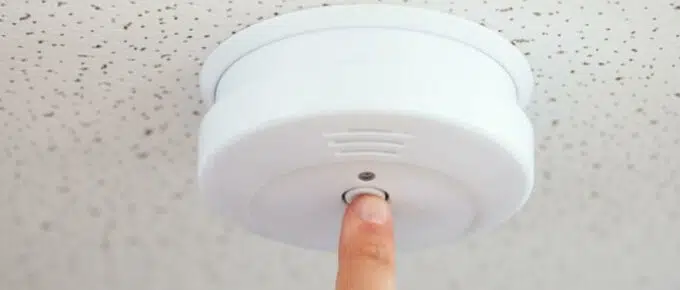


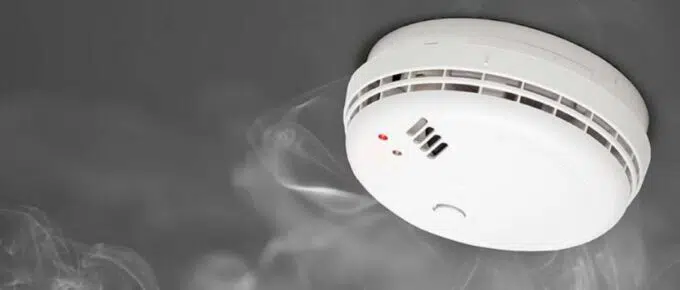
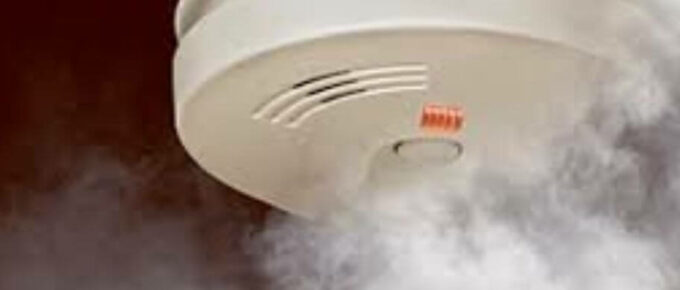
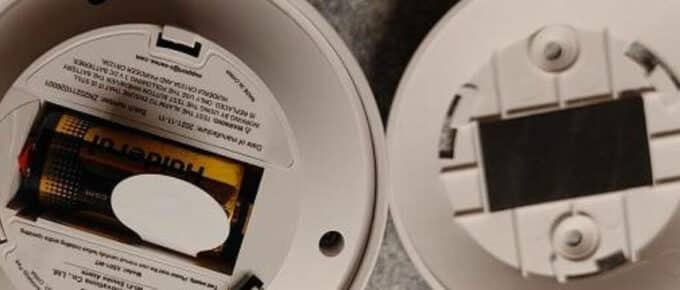
Leave a Reply